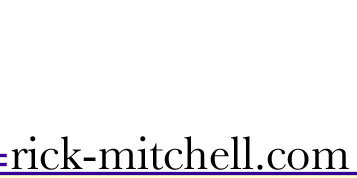Netherlands: High Court Rules Convertible-Rights Gains
Are Tax-Exempt; May Cause Tax Mismatch
By Rick Mitchell
BRUSSELS--The Dutch Supreme Court ruled Oct. 12 that appreciation in the value of conversion rights linked to convertible bonds qualifies for so-called participation exemption benefits under Dutch law, according to court papers and spokespersons from the ministry of finance and the Court.
The decision came in an appeal, brought by the undersecretary of the ministry finance, of a decision by Amsterdam's higher court, said Hank Guildam, the lawyer who argued the appeals case for the ministry of finance.
As a result of the Supreme Court's decision, “The present value of the conversion right is taxable in the first year of the convertible, but gains are not taxable in years after that,” Guildam said.
In other words, “What's taxable is the value of the conversion right when you receive it, not the gain later,” Arjan van der Linde, a senior tax manager at Ernst and Young, told BNA. The only condition is that, to qualify for the exemption, the bond holder must obtain a qualifying shareholding in the bond issuer after the conversion, he said.
Clarifying Treatment of Option Holder
Van der Linde explained that in the early 1980s, the Supreme Court had explicitly ruled that conversion gains realized on convertible bonds were not benefits from a shareholding, and so they were taxable because the participation exemption did not apply.
However, more recent Supreme Court decisions found that holders of options such as employee stock options or conversion rights could be considered “quasi-shareholders,” van der Linde said. This meant that the transaction between the holder and the issuing company was treated similarly to equity transactions between a shareholder and a company.
“But these rulings didn't consider the how Dutch tax treats the option holder. They only addressed the issuing company,” he said, adding, “That's what the court cleared up on Oct. 12.”
“Investors finally have clarity from the Dutch Supreme court: on the extent that a conversion right appreciates in value and the investor realizes a gain on conversion, that gain is not subject to Dutch corporate tax,” van der Linde said.
Possible Mismatch in Taxation
An Oct. 14 note by van der Linde and Gerrit Groen, who also is with Ernst and Young's tax services, Dutch desk, cautioned that the ruling appears to create a mismatch in taxation of convertibles. “[Under] the Dutch corporate tax act, effective as of January 1, 2007, the initial value of the conversion right (or any other option) cannot be deducted for Dutch corporate tax purposes. Nevertheless, the conversion right on issuance does constitute taxable income for the bond holder, to be realized over the term of the bond.”
Van der Linde said the Amsterdam court had examined whether the conversion right's value at issuance constitutes taxable income that would need to be deferred and realized over the earlier of the bond term or conversion, he said. It ruled that the value was not taxable, a decision reversed by the Supreme Court on Oct. 12.
In an interesting twist, the Court also ruled that any subsequent gain in value on the conversion right would be tax exempt under the Dutch participation regime, van der Linde said.
“This is on the condition that the bond holder retain at least a 5 percent stake in the issuer of the bond after the conversion,” he said. “It doesn't matter if the conversion right is for existing stock or new shares to be issued.”
“The court judged that the relation between the issuer of the convertible bond and the bond holder is a quasi-shareholder relationship,” van der Linde said.
“I think this ruling will be of great interest to people working with convertibles, for instance financial institutions, M&A investors, hedge funds, private equity and venture capital companies. All these frequently deal with convertibles,” Van der Linde said.
(Appeared Oct. 18, 2007)

